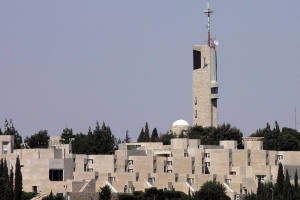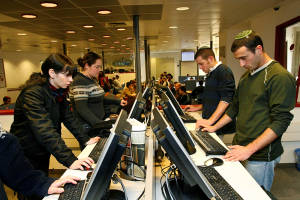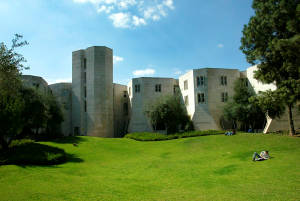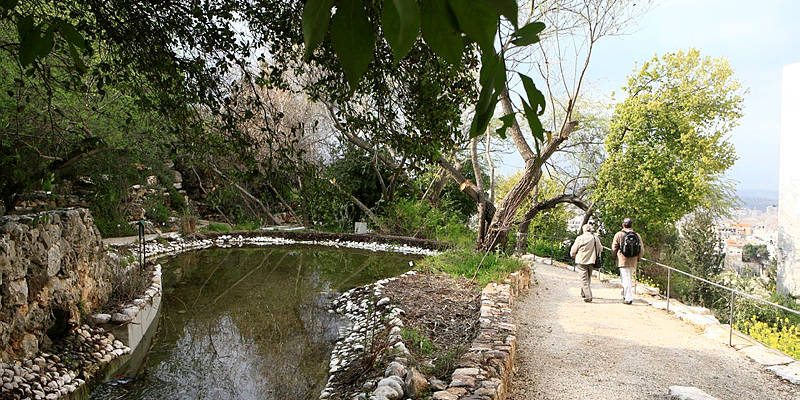
In 1913, at the 11th World Zionist Congress, a decision was made to establish a university in Jerusalem whose language of instruction would be Hebrew.

(Nati Shohat/Flash90)
What do Albert Einstein, Frank Sinatra and Barbara Streisand have in common? They all walked the halls of the Hebrew University of Jerusalem. Hebrew University is not just an academic institution where you can study and earn degrees in a variety of fields. It contains botanical gardens, a theater with one of the best views in Jerusalem and an archaeological site.
The modern State of Israel was declared in May of 1948, but many years earlier plans were already laid out for a university in Jerusalem. Our story begins in 1882 with a series of articles outlining the importance of establishing a university in a future Jewish state. The idea, which was published by Zvi Hermann Shapira, a professor of mathematics in Germany and a committed Zionist, was presented at the first World Zionist Congress in 1897 although no decision was made yet. Shapira died a year later of pneumonia.
In 1902, a pamphlet called A Jewish University, which outlined the steps necessary to establish such an institution, was published. Finally, in 1913, at the 11th World Zionist Congress, a decision was made to establish a university in Jerusalem whose language of instruction would be Hebrew.
The World Zionist Organization laid the cornerstone in July 1918 with the permission of the British, who were controlling Palestine post World War I. The idea was to lay 12 stones corresponding to the 12 tribes of the Jewish people, but in reality there were quite a few more. In 1923, before the university was officially inaugurated, Albert Einstein gave the first academic lecture. The topic was: The Theory of Relativity.

(Michal Fattal/Flash90)
It took seven years from the laying of the cornerstone until the university was officially opened on April 1, 1925. The inauguration took place in a large outdoor theater overlooking the Judean Desert. Representatives of world Jewry and university leaders from around the world attended. Today, the theatre is a wonderful place to stop to take in the amazing views that greeted those who were there at the inauguration. It is no less inspiring now.
A beautiful stop when visiting the university is the botanical gardens, built in 1931 to display the plant life in the region. Wandering around the garden, one encounters an impressive array of plants of all colors, shapes and sizes. There are benches for relaxing and even a waterfall with a pool.
In the center of the garden is a small cave containing one of the most well-known graves in all of Israel, the grave of Nikanor of Alexandria. The Talmud tells a story of a great miracle that occurred to Nikanor as he was delivering the gold and bronze doors that he made to the Temple. One of the Temple gates was named for him.
The campus synagogue is quite an attraction. Many people mistakenly believe that Jews pray facing the east. It is not true. We pray facing the Temple Mount. If you are in the US, you face east; in Australia, you face northwest, and here at the Hebrew University, the synagogue faces southward. While praying, you have a magnificent view of the Temple Mount.

(Olivier Fitoussi/Flash90)
The Hebrew University is built on Mount Scopus, which is part of the Mount of Olives range. Scopus, as in the English word scope, means a view.
Zionism, the historic movement to restore the Jewish people to their ancient homeland, saw the establishment of a university as essential in the process of building the Jewish state. No country in the modern world can be complete without one, and certainly the Jewish people, who are known as the People of the Book, would need an such an institution. As much as the concept of a university was about education, it was also a Zionist ideal that would be another step in the return of the Jewish people to their homeland.
By Moshe Rothchild, Licensed Tour Guide
